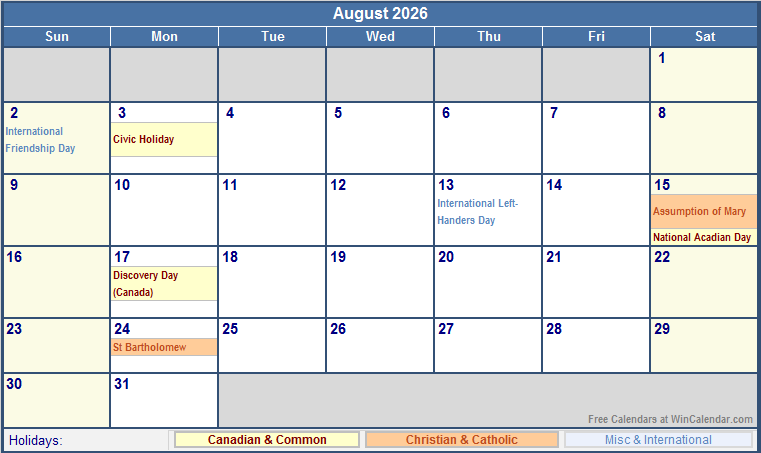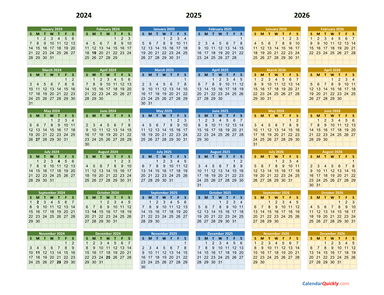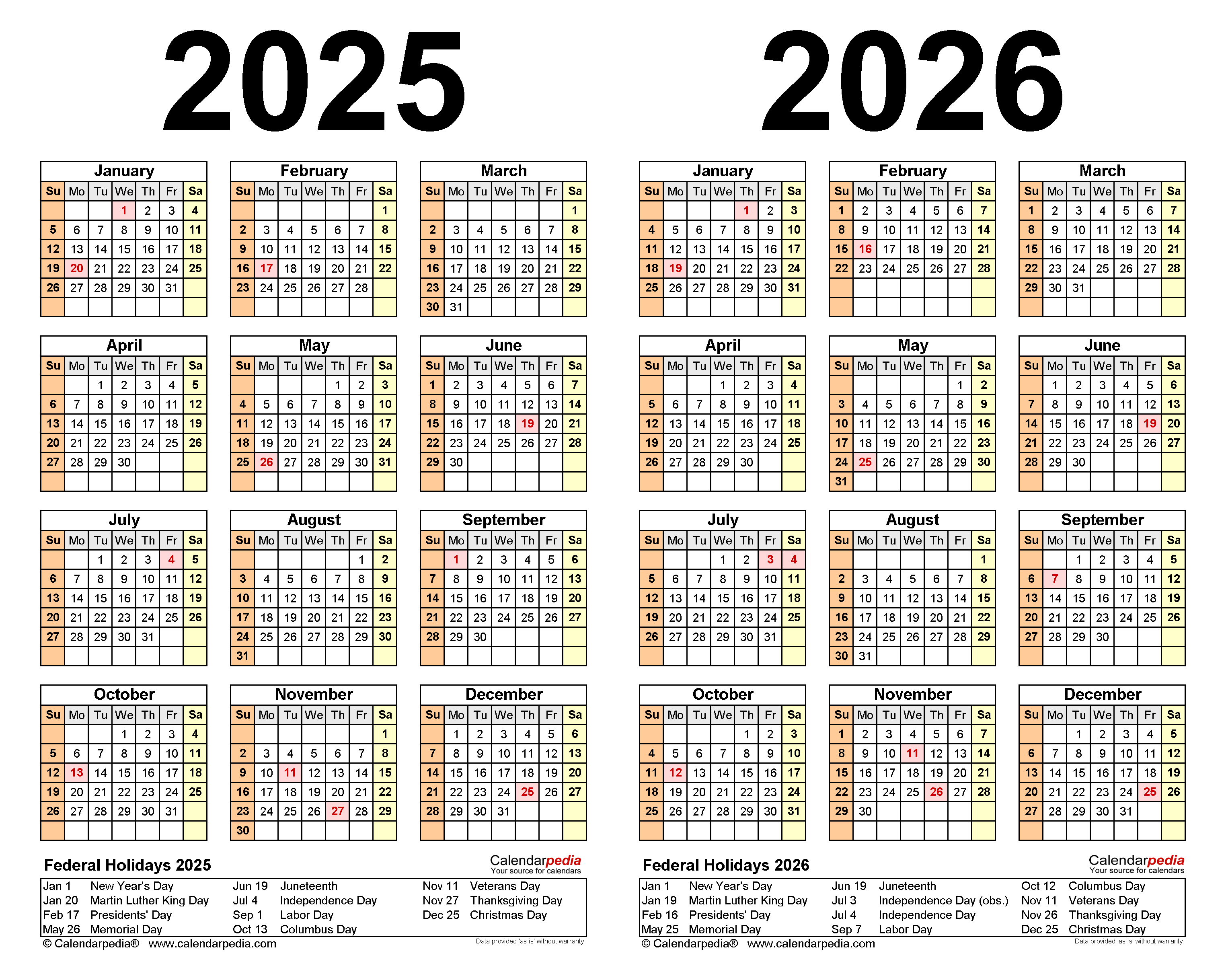Navigating Time: A Comprehensive Guide To August 2026 In Canada
Navigating Time: A Comprehensive Guide to August 2026 in Canada
Related Articles: Navigating Time: A Comprehensive Guide to August 2026 in Canada
Introduction
In this auspicious occasion, we are delighted to delve into the intriguing topic related to Navigating Time: A Comprehensive Guide to August 2026 in Canada. Let’s weave interesting information and offer fresh perspectives to the readers.
Table of Content
Navigating Time: A Comprehensive Guide to August 2026 in Canada

Predicting the future, especially on a granular level, is an inherently complex endeavor. However, understanding the broader historical and cultural context of a specific time period allows for informed speculation and insightful analysis. With this in mind, let’s delve into the potential landscape of August 2026 in Canada, exploring its anticipated events, cultural trends, and potential societal shifts.
The Macroeconomic Context:
By August 2026, Canada is likely to be navigating a complex economic landscape. The global economy, still recovering from the COVID-19 pandemic, will likely be grappling with the long-term effects of supply chain disruptions, geopolitical tensions, and climate change. The Canadian economy, with its strong reliance on natural resources and international trade, will be directly impacted by these global trends.
While specific predictions are difficult, it’s reasonable to anticipate ongoing efforts to address inflation, manage debt levels, and stimulate economic growth. The government’s policies and initiatives will play a crucial role in shaping the economic environment, influencing everything from job creation to consumer spending.
Social and Cultural Landscape:
The social and cultural landscape of Canada in August 2026 will likely be characterized by continued evolution and adaptation. The country’s commitment to inclusivity and diversity will continue to shape public discourse and policy. The ongoing focus on social justice issues, such as racial equality, gender equity, and LGBTQ+ rights, will likely result in further progress and societal change.
Technological advancements will continue to impact everyday life, influencing everything from communication and entertainment to healthcare and education. The rise of artificial intelligence, automation, and data analytics will present new opportunities and challenges, requiring adaptation and reskilling within the workforce.
Environmental Concerns:
Climate change will remain a paramount concern in August 2026. The Canadian government’s commitment to achieving net-zero emissions by 2050 will likely be reflected in ongoing policy initiatives and investment in renewable energy sources. The country’s vast natural resources will continue to play a vital role in meeting energy demands while minimizing environmental impact.
The effects of climate change, such as extreme weather events and rising sea levels, will likely be increasingly evident. This will necessitate adaptation strategies and investments in infrastructure resilience, particularly in coastal areas and regions vulnerable to natural disasters.
Major Events and Celebrations:
While specific events are subject to change, August 2026 is likely to witness a mix of national celebrations, cultural festivals, and sporting events. The annual Calgary Stampede, a major rodeo and festival, will likely be in full swing, attracting visitors from across Canada and beyond. Other potential events include:
- Canada Day (July 1): The country’s national holiday will be celebrated across Canada, with parades, fireworks, and community gatherings.
- Summer Festivals: Various cities across Canada will likely host music festivals, art exhibitions, and cultural celebrations throughout the summer months.
- Sporting Events: August 2026 could see the continuation of major sporting events like the Canadian Football League (CFL) season, with the Grey Cup championship game taking place in December.
FAQs:
Q: Will Canada have a federal election in August 2026?
A: It is impossible to definitively predict the date of the next federal election. Canadian federal elections are typically held every four years, with the next election potentially scheduled for October 2025. However, the Prime Minister can call an election at any time, making the timing uncertain.
Q: What will be the main political issues in Canada in August 2026?
A: The political landscape is dynamic, and predicting specific issues is challenging. However, potential key topics include:
- Economic growth and job creation: Balancing fiscal responsibility with economic stimulation will be a key focus.
- Climate change and environmental protection: Implementing ambitious climate policies and investing in renewable energy will remain a priority.
- Healthcare and social services: Ensuring affordable and accessible healthcare for all Canadians will likely be a central concern.
- Immigration and integration: Managing immigration levels and promoting successful integration of newcomers will be crucial.
Q: What are some potential cultural trends in Canada in August 2026?
A: Cultural trends are constantly evolving, but some potential areas of focus include:
- Increased focus on mental health and well-being: The pandemic has heightened awareness of mental health issues, leading to increased emphasis on mental health support services and initiatives.
- Growing interest in sustainable living: Consumers are becoming more aware of environmental impacts and seeking sustainable products and services.
- Continued emphasis on diversity and inclusion: Canada’s commitment to inclusivity will continue to shape cultural expression and societal values.
Tips:
- Stay informed about current events and policy developments: Follow news sources and engage with reputable organizations to stay updated on political, economic, and social issues.
- Explore Canadian culture and heritage: Embrace the diverse cultural offerings of Canada, from its vibrant arts scene to its rich history.
- Travel and experience Canada’s natural beauty: Discover the vast landscapes, pristine wilderness, and unique ecosystems that define Canada.
Conclusion:
While August 2026 is still several years away, understanding the broader context of Canada’s historical and cultural landscape allows for insightful speculation about the potential events, trends, and societal shifts that may occur. From navigating a complex global economy to addressing climate change and fostering social progress, Canada will continue to evolve and adapt to the challenges and opportunities of the future.







Closure
Thus, we hope this article has provided valuable insights into Navigating Time: A Comprehensive Guide to August 2026 in Canada. We appreciate your attention to our article. See you in our next article!